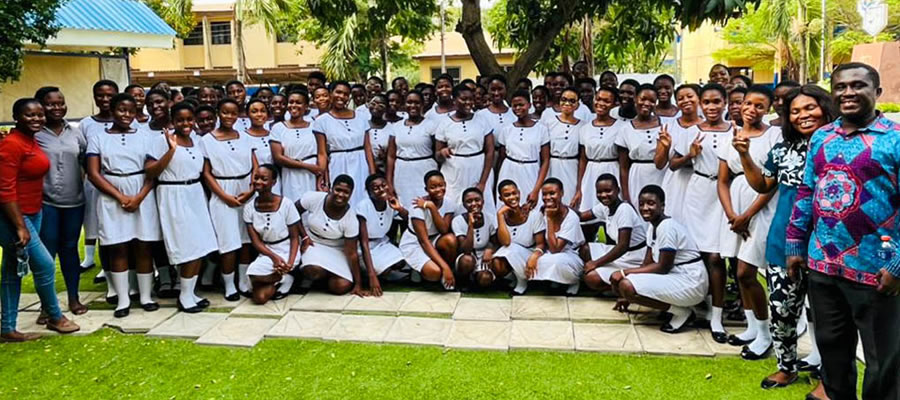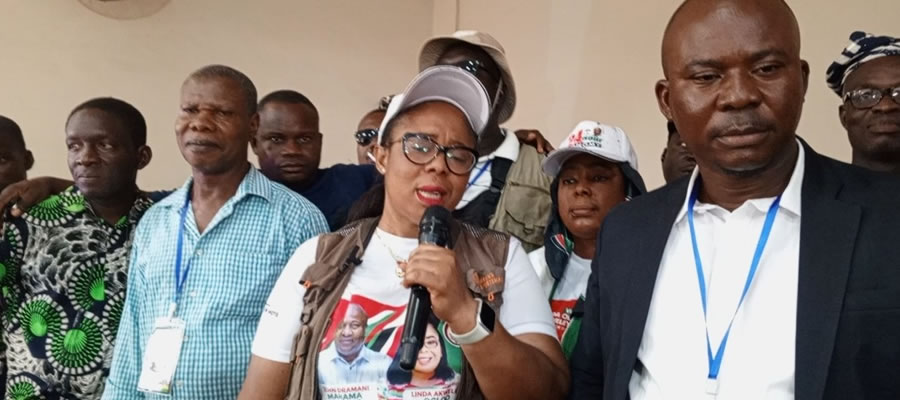

GENERAL
AMA - RTI Unit empowers students, others to access information from government institutions

Date Created : 11/26/2024 : Story Author : Susana Danso/Ghanadistricts.com
The public outreach programme, which forms part of the RTI Month celebrations and International Day for Universal Access to Information (IDUAI), sought to, among other things, raise awareness about the Act's role in fostering transparency and accountability and encourage the youth to exercise their right to request information held by government institutions.
Speaking in an interview with the media after the outreach programme, an RTI Officer at the AMA, Ms Helen Quartey, reiterated the value of educating youth on the RTI Act, stressing that familiarity with the law would empower residents to hold institutions accountable and foster transparency.
"The RTI Act empowers citizens with the right to request information held by public institutions. This law is a crucial tool for transparency and accountability, and key to building trust between the government and the people," she explained.
She noted that the campaign was specifically designed to equip students with an understanding of the RTI Act’s application process, which involves submitting a written or oral request or completing a standardised application form describing the information requested.
"We are committed to making this process as accessible as possible. We want people, including young citizens, to feel confident that they can exercise their rights without facing undue barriers,” Ms Quartey said.
Highlighting the inclusivity of the RTI Act, Ms Quartey informed students that fees associated with accessing information are nominal, ranging from 0.27 pesewas to 3.50 Ghana cedis, based on the mode of transcription.
She pointed out that to ensure equity and inclusivity, persons with disabilities and indigent individuals were exempt from these fees.
Briefing students on seeking recourse if access to information was denied, Ms Quartey explained that sections 31-39 of the Act allowed for internal reviews by the institution, with further appeal options available through the RTI Commission or the courts if necessary.
“We want young people and residents to understand that transparency in government is essential for a democratic society, hence the need to uphold the RTI Act as a means to hold institutions accountable,” she said.
Ms Quartey disclosed that the information service had assigned RTI officers to all the Sub-Metropolitan Districts to ensure residents have direct access to information resources.
The officers, she said include Ransford Adu-Acheampong for the Okaikoi South Sub-Metro, Priscilla Lartey for the Ashiedu Keteke Sub-Metro, Emmanuel Attoh Kofi Armah for the Ablekuma South Sub-Metro, and Sophia Akwaah Asiamah at the Greater Accra Regional Coordinating Council.
Institutions that benefited from the outreach included Police Depot No. 1 and No. 2 JHS, Mamprobi EP Church School, St. Mary’s Girls Secondary School, City Sec. Business College School (CIBUSCO), Martyrs of Uganda School, and the Church of Pentecost, North Kaneshie Branch.










 facebook
facebook
 twitter
twitter
 Youtube
Youtube
 +233 593 831 280
+233 593 831 280 0800 430 430
0800 430 430 GPS: GE-231-4383
GPS: GE-231-4383 info@ghanadistricts.com
info@ghanadistricts.com Box GP1044, Accra, Ghana
Box GP1044, Accra, Ghana